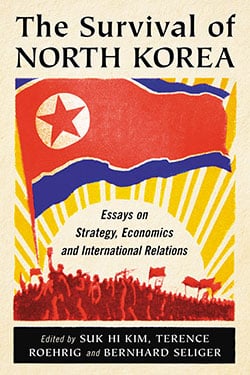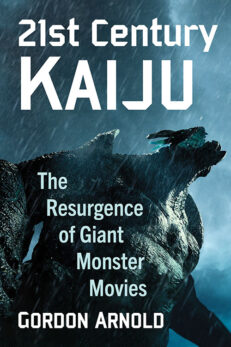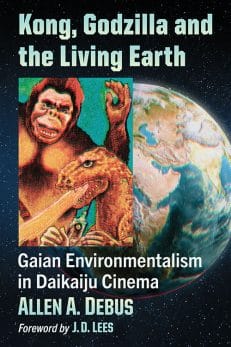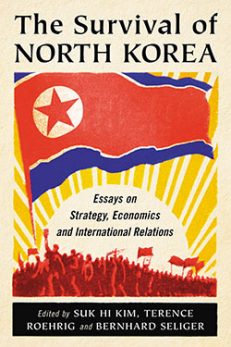The Survival of North Korea
Essays on Strategy, Economics and International Relations
$39.95
In stock
About the Book
Since the end of the Cold War, scholars and analysts have been predicting the collapse of the communist regime in North Korea. Yet, despite a deteriorating economy characterized by declining industrial output, outdated technology, and difficulty feeding its people, the country has been able to persist and continues to plod along. How has North Korea been able to survive, and how long can it last without significant change to its economic and political structures? How can we peacefully resolve the North Korean nuclear standoff through constructive dialogue?
This book examines North Korea’s survival strategy and offers practical solutions to a 50–year nuclear standoff through a series of essays written by 15 of the world’s foremost scholars and leading experts on strategy, economics and international relations. It is essential reading for anyone interested in peace in Northeast Asia and will be invaluable in helping policy-makers, diplomats, politicians, researchers and other North Korea watchers to understand three closely related issues about North Korea: (1) why North Korea will continue to survive; (2) how the United States and North Korea can build a mutual confidence; and (3) why a dialogue is the only viable way to resolve the North Korea problem peacefully.
About the Author(s)
Bibliographic Details
Edited by Suk Hi Kim, Terence Roehrig and Bernhard Seliger
Format: softcover (6 x 9)
Pages: 270
Bibliographic Info: tables, notes, index
Copyright Date: 2011
pISBN: 978-0-7864-6463-0
eISBN: 978-0-7864-8729-5
Imprint: McFarland
Table of Contents
Introduction 1
1. North Korea: Yesterday, Today, and Tomorrow
Suk Hi Kim 11
2. Will North Korea Be Able to Overcome the Third Wave of Its Collapse?
Suk Hi Kim 28
3. Why Did So Many Influential Americans Think North Korea Would Collapse?
Bruce Cumings 44
4. The Strategic Role of North Korea in Northeast Asia
Suk Hi Kim 64
5. Inter- Korean Economic Cooperation
Semoon Chang and Hwa- Kyung Kim 86
6. Economic Reform and Alternatives for North Korea
Thomas F. Cargill and Elliott Parker 99
7. China– North Korea Relations
Dick K. Nanto and Mark E. Manyin 116
8. North Korea’s “Collapse” Pathways and the Role of the Energy Sector
Peter Hayes and David von Hippel 137
9. Rethinking Special Economic Zones as a Survival Strategy for North Korea
Sung- Hoon Lim 160
10. Violence from Within: North Korea’s Place in East Asian Community Debates
Mikyoung Kim 180
11. The Northern Limit Line and North Korean Provocations
Terence Roehrig 198
12. Lessons Learned from the North Korean Nuclear Crises
Siegfried S. Hecker 214
13. Channels of Engagement with North Korea: Academic Exchanges
Bernhard J. Seliger and Suk Hi Kim 230
14. U.S. Policy Options on a Nuclear North Korea
Suk Hi Kim and Bernhard J. Seliger 245
About the Contributors 257
Index 261
Book Reviews & Awards
“this book offers a realistic approach to dealing with a difficult, opaque country that is not going away any time soon”—Korean Quarterly; “This volume, which includes insights from some of the foremost practitioners of direct engagement with North Korea, examines comprehensively the contradiction between the conventional wisdom that the North Korean system is unsustainable and the reality of North Korea’s ability to adjust and survive. This volume examines the factors that have sustained North Korea and the extraordinary policy challenges that a nuclear North Korea’s survival—or its demise—may generate for peninsular and regional stability in Northeast Asia.”—Scott Snyder, director, Center for U.S.-Korea Policy, The Asia Foundation; “For understandable reasons, there has been a tendency, particularly in the United States, to focus almost entirely on the nuclear issue when thinking about North Korea. A similar comment could be made about the recurrent preoccupation with collapse. This welcome collection of papers achieves a broader perspective by stepping back and asking some very fundamental questions about the sources of North Korea’s demonstrated durability and how the country might evolve in a variety of dimensions over the medium- to long-run…a laudable contribution on an important issue.”—Marcus Noland, deputy director, Peterson Institute for International Economics; “This book should be read by any scholar, journalist or diplomat interested in developments on the Korean peninsula. It offers extremely valuable insights and helpful recommendations for peaceful change.”—Hans-Ulrich Seidt, German ambassador to the Republic of Korea; “This is the first book to explain systematically why North Korea has endured against all odds. It also shows why, in spite of the efforts of the greatest powers on Earth to force it to abandon its nuclear weapons program, it has refused to capitulate and has instead pursued its own path to become nuclear-armed. Given the complicated nature of the international conflict focused on and in Korea, no book can provide a decisive answer to why North Korea survived. But with its many carefully interwoven threads of argument and evidence, this book provides the reader with insight into the full complexity of the Korean conflict. Now one of the longest wars in history, the book reflects the urgency of ending the standoff on the Peninsula and of avoiding a war that could easily escalate into a catastrophic, nuclear war.”—Peter Hayes, executive director, Nautilus Institute for Security and Sustainability.





